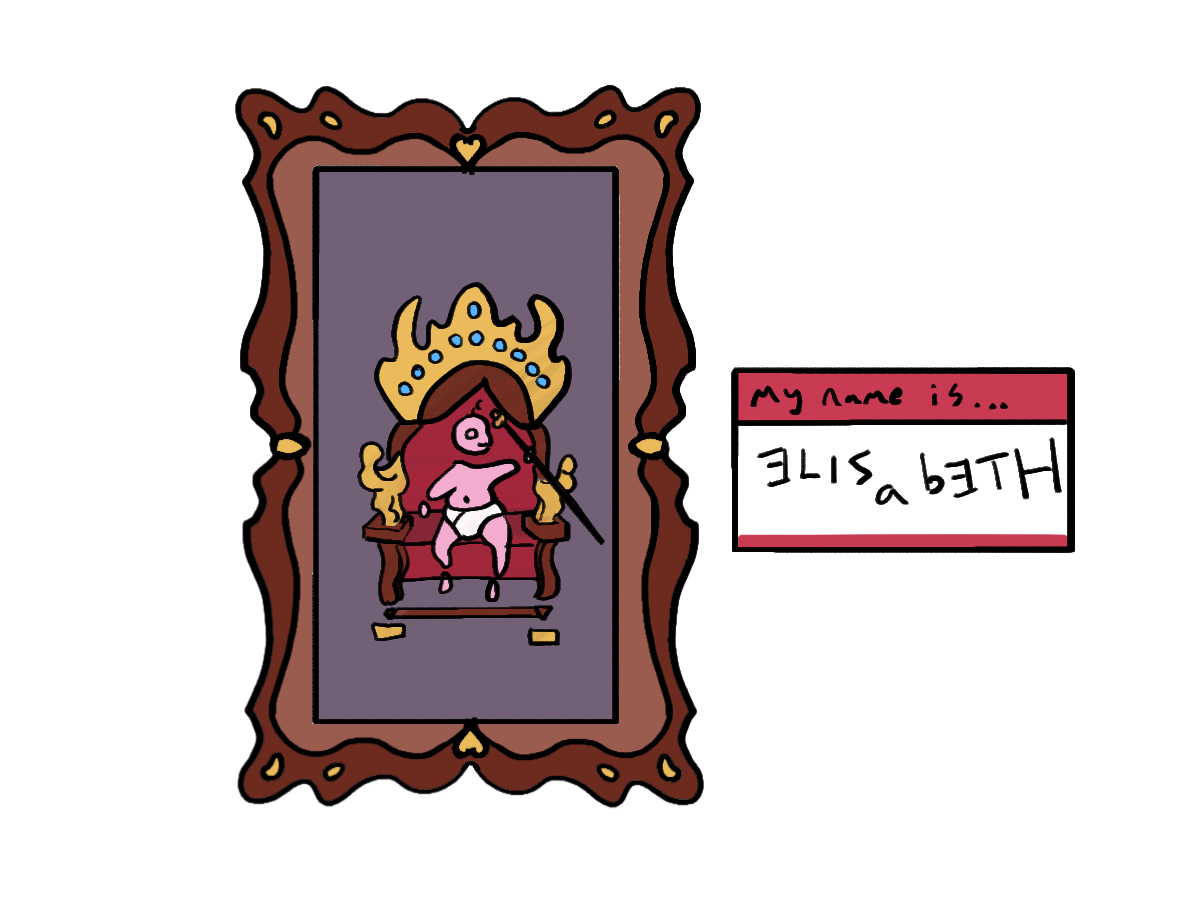The varying implications of being named after someone famous
What belongs to you, but everybody else uses it?
Your name of course!
Through your groans from my abominable dad joke, you’ve hopefully started to think about the notions of names and naming, and perhaps how strange it is that you identify and respond to a certain mixture of sounds that your parents chose a little while back.
I’ve always found names fascinating, and I’ve been known to wonder what makes people pick certain ones over others, or how names impact the people they correspond to.
I know why my name was chosen — my first name, Talia, is a name my parents loved and was inspired by my late great-grandmother, Tilly. My middle name, Regan, is a modern take on Regina, my other late great-grandmother’s name. Both were strong and kind women who also happened to be seamstresses (a skill that is not transferable by name, let me and my embarrassing mending jobs tell you…).
My name gives me a legacy to live up to, and it made me wonder how other people feel about theirs if they’ve been named after another person.
In particular, I became curious about those who are named after celebrities or movie characters. Do they feel an urge to measure up to them? Do they become a model for their aspirations? What happens if the celebrities do something wrong?
As usual, I took to my trusty Instagram story to see what I could find.
Liza Shahin is named after Liza Minnelli, the American actress, singer, dancer and choreographer.
“They wanted a name with an L because [of] my great grandmother,” she said of her parents, who wanted to commemorate their late relative. Shahin continued on to say that her mom was the one really set on the name Liza. “She really loves [Minnelli] as an artist, and she loves Cabaret and stuff like that.”
“I would say I know more [about Minelli] than the average person our age because of my name,” Shahin said, noting that about 50 per cent of the time she introduces herself, she gets asked if she was named after the superstar.
Shahin explained that she’s never felt that there was expectation to live up to Minnelli (thankfully, since that would be a pretty tall order), but she loves that she’s named after her.
“Based on performances, she’s kind of bubbly and I can be kind of bubbly,” said Shahin when asked whether they have similar qualities. “But that’s really about it. I don’t think I’m musical, really, and that’s what she’s known for.”
“She has a song called ‘Liza with a “Z”’ and it’s all about how everybody mispronounces her name,” said Shahin. “So that is the most I feel connected to her.”
Liza Minnelli is a pretty safe celebrity to be named after, but Shahin wonders what it would be like to be named after someone more problematic. “I feel like it’s easy to be named after someone, and then, like, they do something bad,” she said.
That being said, she posits that this problem of namesakes and “cancel culture” will probably become more of an issue as we get older and name our children after celebrities, since our generation is the one that tends to do the “cancelling.”
Sam Novack has a middle name straight from the Temple of Doom, and gives some perspective on what it’s like to be named after a fictional character.
If you haven’t already guessed, Novack’s middle name is Indiana, after Indiana Jones, a fictional archaeology professor and the hero of four movies to date.
“He probably just really liked Indiana Jones,” said Novack, referring to his father and explaining that his dad got to choose a “random” name because his mom got to choose one for his sister.
“Growing up, I watched the movies with my dad and we had them all on DVD,” he said. “I really never felt so much of an attachment to it.”
Despite the lack of profound effect from having this awesome middle name, Novack explained that he did “used to really want the same kind of hat as him,” which to me is as profound as it gets.
While Alexa Toguri-Laurin isn’t named after a celebrity, she explained that she does share a name with the Amazon cloud-based voice service, which has brought up similar issues that come from celebrity namesakes.
“Some girls have either funny experiences or really disheartening experiences,” said Toguri-Laurin. “For me, I kind of get annoyed with the joke, but I kind of got used to it.”
Toguri-Laurin stressed that her attitude towards all the Alexa jokes is not the case for everyone. She mentioned a recent BBC article about parents calling on Amazon to change their product’s name because their daughters were being bullied for sharing a name with the voice service.
Amazon so thoughtfully responded by apologizing and informing the public that there are options to change the settings on their products to respond to a different name than Alexa, but that they wouldn’t abolish Alexa entirely.
While there’s no straight formula to choosing a good namesake, it’s safe to say that names are powerful — they have the ability to inspire, commemorate, and even cause pain. Personally, I’d stick to people who have already passed or fictional characters that can’t surprise you with awful actions, but that’s just me. Just please steer clear from politicians — you’ll thank me later.
Graphic by James Fay
